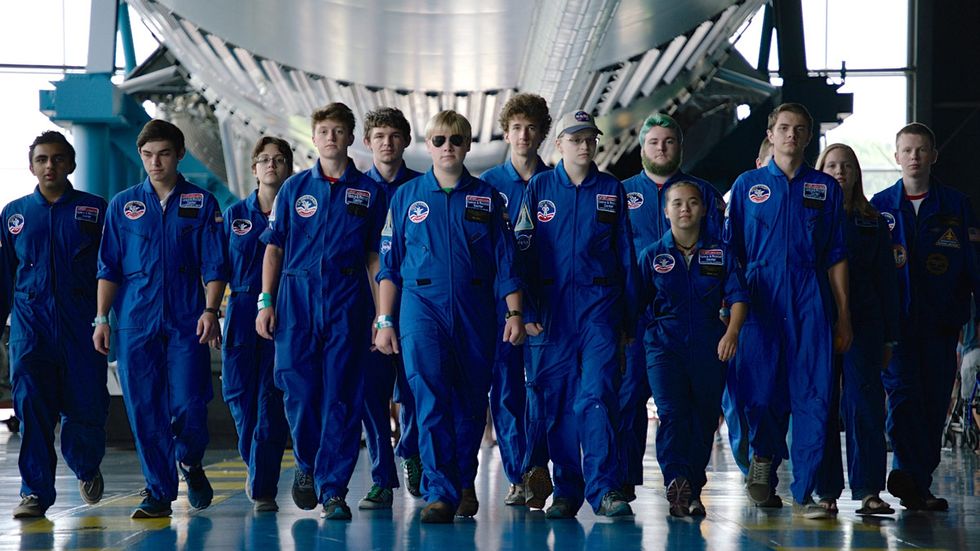On May 5, 2017, Netflix released a new movie titled "The Mars Generation". Directed by Emmy award winner Michael Barnett, the documentary follows high school students as they attend the Elite Space Academy in Huntsville, Alabama. The camp pulls teens through an immersive experience that explores the many different career plans in STEM (science, technology, engineering, and math) and the possibility of going to Mars. Teens partake in activities like various different astronaut training, team building, and engineering challenges. In the movie, the audience is able to see the teams building rockets, robot rovers, and running flight simulation. Bill Nye, Bobak Ferdowsi, Neil deGrasse Tyson and Dr. Michio Kaku serve as commentary for the film.
I recently had the opportunity to contact Niko Blanks, a senior in Chattanooga, TN and a member of the team Netflix followed to talk about his experience at the Elite Space Academy, and as part of the Netflix documentary.
When asked what inspired him to attend space camp, Blanks credits movies like Apollo 13 and Star Wars for inspiring him to "travel through the stars". He also added, "Ever since I was a little kid I've wanted to be an astronaut. I was fortunate enough that my mom was able to send me to space camp so I could pursue my dream. I attended space camp two times prior to being invited to the Elite Space Academy."
Space camp is open to people of all ages, but the specific camp he attended was aimed only toward high school students that have previously attended a camp. Blanks' team was the first to experience the Mars simulation where they had to successfully land on Mars. Blanks explained that, "it was an honor to be part of the start of an amazing simulation that reflects where our generation is headed."
The team participated in many simulations and faced many challenges, but for Blanks', his favorite simulation was where he was an astronaut aboard a 24 hour space shuttle simulation. During the 24 hours, they were under pressure except for when they slept. However, during the Mars simulation he was part of the mission control team. When his team had successfully landed, Blanks said that everyone was so "stoked to think that this could actually happen in our life times."
The documentary had a subtle political tone that showed how NASA had become so successful with the support of presidents. For example, there were clips that showed JFK and Obama speaking to the public about how important space travel is. Without government and public support, NASA won't be able to do amazing feats like landing on Mars. That's where private companies like SpaceX come in. Blanks goes into detail to say that he believes, "the future of space exploration is going to be dominated by private companies such as SpaceX. NASA will always have its place, but Elon Musk is already proving that private companies can achieve so much so quickly. They have less restrictions than government funded space agencies." And adds, "NASA says they are aiming to put humans on Mars by the early 2030s whereas Elon Musk said his company, SpaceX, can do it 5 years earlier- somewhere in the mid- 2020s", as an example of how private companies will become the face of space exploration.
Blanks would like to encourage the younger generation to attend Space Camp by saying, "Even if you have no desire to be an astronaut, you learn so much about the STEM subjects. You get to experience why science is so important with those who have the same interests as you. I have met so many amazing people that I will be friends with my entire life. It's a life changing experience."
So in the words of John F. Kennedy, "We choose to go to the Moon! We choose to go to the Moon in this decade and do the other things, not because they are easy, but because they are hard; because that goal will serve to organize and measure the best of our energies and skills, because that challenge is one that we are willing to accept, one we are unwilling to postpone, and one we intend to win."
"The Mars Generation" is now streaming on Netflix.















